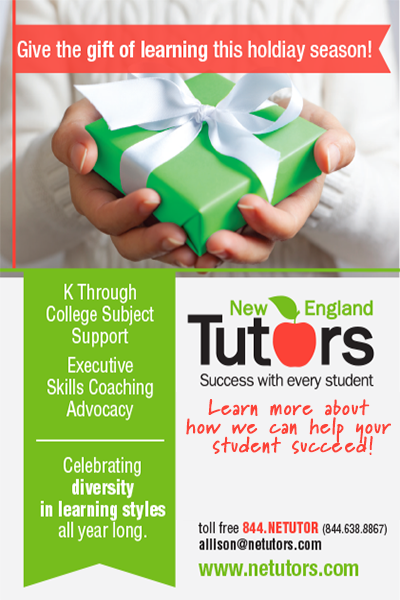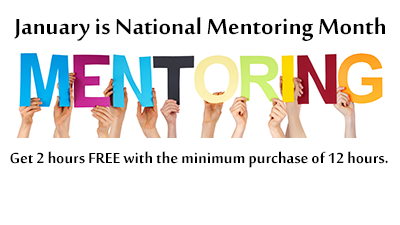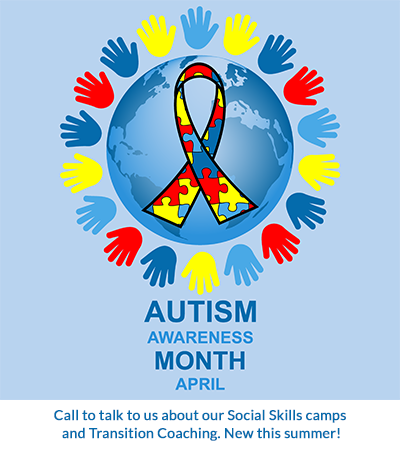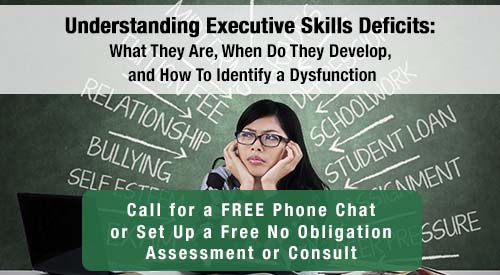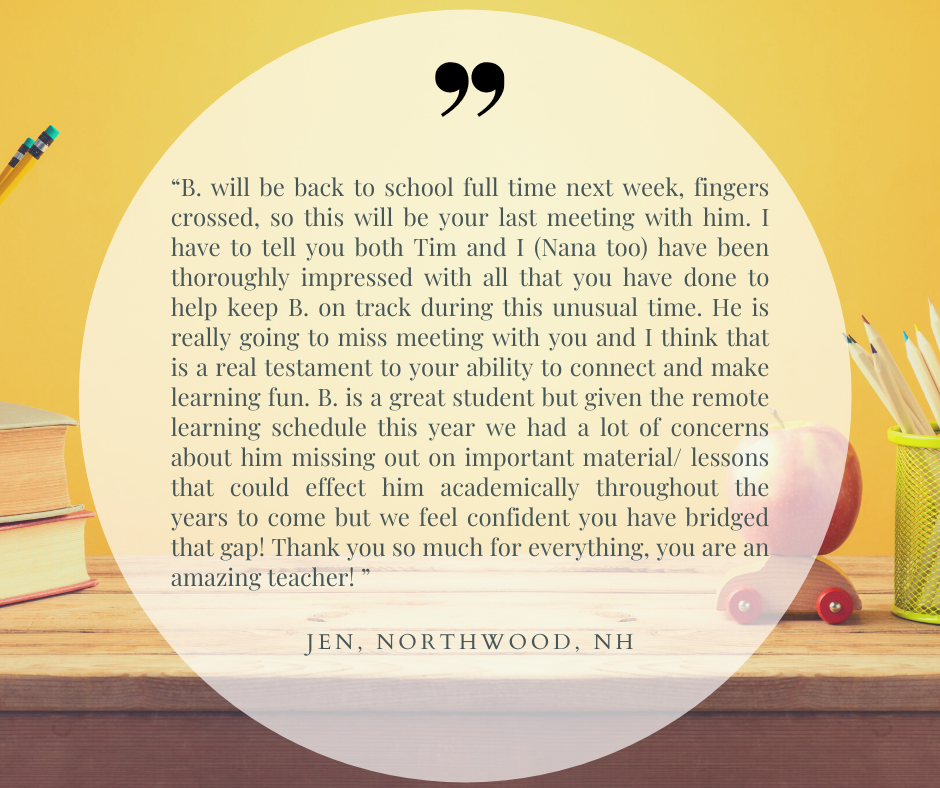 A four-year old might like to read at home with mom and dad, but will he be able to sit through lessons with a teacher when he transitions to Kindergarten? A 10-year old seems to be able to keep up with her homework when it all comes from one teacher, but is she ready to track homework across multiple classrooms as she transitions to middle school? A 14-year old loves reading non-fiction, but will he be able to manage long-term, multi-step research projects when he transitions into high school? When a student moves from one academic stage to the next, they are being asked to engage with a whole new set of tasks that require a whole new set of skills.
A four-year old might like to read at home with mom and dad, but will he be able to sit through lessons with a teacher when he transitions to Kindergarten? A 10-year old seems to be able to keep up with her homework when it all comes from one teacher, but is she ready to track homework across multiple classrooms as she transitions to middle school? A 14-year old loves reading non-fiction, but will he be able to manage long-term, multi-step research projects when he transitions into high school? When a student moves from one academic stage to the next, they are being asked to engage with a whole new set of tasks that require a whole new set of skills.
During these transitions, parents might worry if their child’s content knowledge is sufficient (does my child know enough letters? Does my child know enough algebra?). However, the dissemination of content knowledge is one major purpose of school. Parents shouldn’t have to worry that they need to pre-teach their children what they will be learning in school. In fact, high content knowledge is not necessarily a predictor of a smooth academic transition. Research shows us that students with strong executive functioning (EF) skills do best in these academic transitions (Hughes, 2014).
Executive Function Skills Defined
EF skills are the skills that allow us to utilize and organize what we know. According to researchers Zelazo and Muller (2010), executive function is an “important construct that refers generally to the psychological processes involved in the conscious control of thought and action” (Goswami, 2010, p. 574). This is separate from what we can learn and know. Executive function refers more to how we are able to think and apply the information that we know. More importantly, EF skills allow a person to engage in goal-directed behavior (Poon, 2018). For example, your student may know more than you do about the civil war, but her EF skills will dictate whether she can organize that knowledge into a school research project or use that knowledge to write her college application. EF encompasses skills like organizing, time-management, task-initiation, and impulse-control. Experts differ in the way they breakdown these skills. Some will say executive function consists of four or five skills while some will list as many as twelve skills.
While you’ll find differences in the various lists of EF skills, most cover areas of working memory (accessing our knowledge when we need it), planning and organizing (engaging in long term and multi-step processes), self-control (or thinking before acting), and meta-cognition/self-perception (understanding our own strengths and limitations and reflecting on ways to improve). All experts agree that EF skills play a pivotal role in a persons ability to set and achieve goals.
Executive Function and Goal-Directed Activities
EF skills support goal-directed activities in numerous ways. In lower grades a “goal” for a student might be to listen to the teacher during circle time or to finish a math assignment. For these students, strong EF will appear in their ability to sit even when they get bored (self-control) or to ask for help before they get overly frustrated (self-perception). In middle grades, goal-directed activities often require multiple steps. For example, a student might want to get into jazz band. A student in this situation would showcase strong EF when she planned to practice every day (planning and decision making), when she followed through and actually practiced (self-control), when she turned off her phone during practice to keep focused (self-perception), and when she noticed her mistakes and improved (meta-cognition). Goal-directed behavior in high school simply asks for a further advancement of these skills.
To focus on academic goals, a high school student must:
- exercise more working memory due to longer tests and more class content
- heighten planning and organizing skills to juggle demanding class schedules, activities, and college plans
- practice self-control as course work becomes harder and takes up more free time
- increase meta-cognition as course work requires improvement, and parental and teacher oversight decreases
While content knowledge and what we might call “intelligence” play a part in the academic success of students, research shows that it’s strong executive function skills that allow them to engage in the behavior that helps them reach their goals.
Executive Function Skills and Transitions
With each new transition, students are asked to utilize higher order skills in order to succeed. Thankfully, research shows that EF skills advance together (Goswami, 2010, p. 593). So, as a student gets better at planning, she also gets better at decision-making (etc). In the course of typical development, a child’s EF skills will increase at certain milestones. As children age, they can keep in mind more complex rule systems and perform more complex tasks. Yet, it’s not a guarantee that an academic transition (say from elementary to middle school) will directly correspond with a child’s development. Some kids can enter middle school and soon learn to navigate the use of lockers, change of classes, tracking of homework, and moderating of emotional stimuli required of this age group. But some kids can’t — they forget locker combinations, or lose homework, or experience emotional outbursts, or a combination of all these things. “Failures of EF occur in different situations at different ages and these situations can be ordered according to the complexity of the inferences required” (Goswami, 2010, p. 574).
This means that students who performed well in elementary might see more struggles as they move up to middle or high school and more is demanded of them. This can also mean that a student experiencing a rough transition, say a struggling 9th grader, may not have a long-term deficit. He might just need extra support as his executive function skills “catch up.”
Building Executive Function Skills
While EF skills are strongly tied to genetics, this doesn’t mean that these skills can’t be improved. Research shows us that certain home and school experiences strengthen EF skills. Hughes (2014) explains that if children engage in goal-orientated activities that may be difficult for them while also receiving “scaffolding, attention, and encouragement,” those children develop the capacity to complete more complex tasks over time. This combination of challenge and encouragement has been shown to improve EF skills when they happen in the home or in the classroom. Simply providing students difficult work or even helping them set challenging goals though will not help them strengthen their EF skills. The magical combination seems to be the challenge plus the support. Scaffolding refers to the support that a parent or educator can give a student to bridge the gap between what the student knows (or can do) and what the student wants to know (or wants to do).
Educators put in countless hours (many off the clock), invest personal resources, often sacrifice core beliefs, and still don’t have the time to give students much 1:1 attention. Parents too are busy, and also may find that sometime around the middle school years, children resent and resist the input of a parent. This can result in power struggles and lead frustrated parents to simply “buckle down” on the ground rules or set up stricter study parameters for struggling students. It’s a fairly universal phenomenon that parents and teens can’t always put their power dynamics aside to make academic support productive. The teen is biologically primed to try to exert independence at this time and doesn’t like seeing the parent as the expert. Yet, while rule setting shows slightly better academic gain than all out permissiveness, experts say “proactive rather than reactive” strategies have been shown to increase young people’s executive function, particularly self-control (Hughes et. al, 2014, p. 138). What works best is a shared task where a parent provides help and support when needed. Generally, a lot of support in the beginning and then less support as the child’s skill improves. For this process of support to work, parents (or an educator) have to give the child a high degree of attention and have a good grasp on what their “children are saying, thinking, or doing” (Hughes, 2014). Due to time constraints, and also resistance on a teen’s part, this pattern of support and attention may not be possible either at school or at home. Parents who wish to support their child’s academic and executive function development may want to look for outside resources to increase the attention and support their children receive. Two possible options are tutors and executive skills coaches.
Academic Tutor vs. Executive Skills Coach
An academic tutor is generally a subject-specific professional who can work individually with a student. This assistance can provide much needed attention so that a student has time to process, ask questions, and practice a subject he might find particularly difficult. While not (generally) trained in executive function support, tutors may still be beneficial to EF development in a student. Content area knowledge can provide the “goal” the student is working on and then the tutor can provide the bridge that helps a student proceed from what she knows to what she wants to know. As long as the tutor is responsive and attentive, the student will most likely see gains in EF skills from the individualized work. Learn more about New England Tutors options for K-12 academic tutoring.
Executive skills coaches are professionals with a background and a deep working knowledge of executive function skills. They can often work more directly with identified EF struggles. For instance, if your high school freshman is losing track of his homework, then an EF coach might work with the goal of increased organizational systems and then work in a responsive and attentive way to help your student develop organizational skills. This work theoretically can be done for any of the executive skills — from working memory to meta-cognition. So, while EF skill increases are a natural byproduct of academic tutoring, these increases are the major focus of EF coaching. Learn more about New England Tutors evidence-based Executive Skills Coaching.
More than Just Academics
EF skills have been linked to many important aspects of life — from academics, to hobbies, to professional life, to relationships. Strong EF skills allow adults to “get and keep a job, provide responsive care for children, manage a household, and contribute productively to the community” (Center on the Developing Child, 2020). The ability to set, work toward, and accomplish goals is vital to professional and personal life. Understanding and building these skills sets young people on a path that gives them agency over their future goals and success.
For more information about New England Tutors Executive Skills Coaching and Academic Tutoring, call 844-NETUTOR Ext. 700 or email allison@netutors.com.
References
Center on the Developing Child (2020). The Science of Adult Capabilities. Harvard University. https://developingchild.harvard.edu/science/deep-dives/adult-capabilities/
Hughes, C., Roman, G., Ensor R. (2014). Parenting and Executive Function: Positive and Negative Influences.
In Cooper, C.&S. Landry (Eds). Wellbeing in children and families. Wiley-Blackwell. Retrieved from https://ebookcentral-proquest-com.gate.lib.buffalo.edu
Poon, K. (2018). Hot and Cool Executive Functions in Adolescents: Development and contributions to Important Developmental Outcomes. Frontiers in Psychology 2018;8 DOI 10.3389/fpsyg.2017.02311
Zelazo, Philip D. & Muller, U. (2010). In U. Goswami (Ed.). The Wiley-Blackwell Handbook of Childhood Cognitive Development. Retrieved from https://ebookcentral-proquest-com.gate.lib.buffalo.edu


